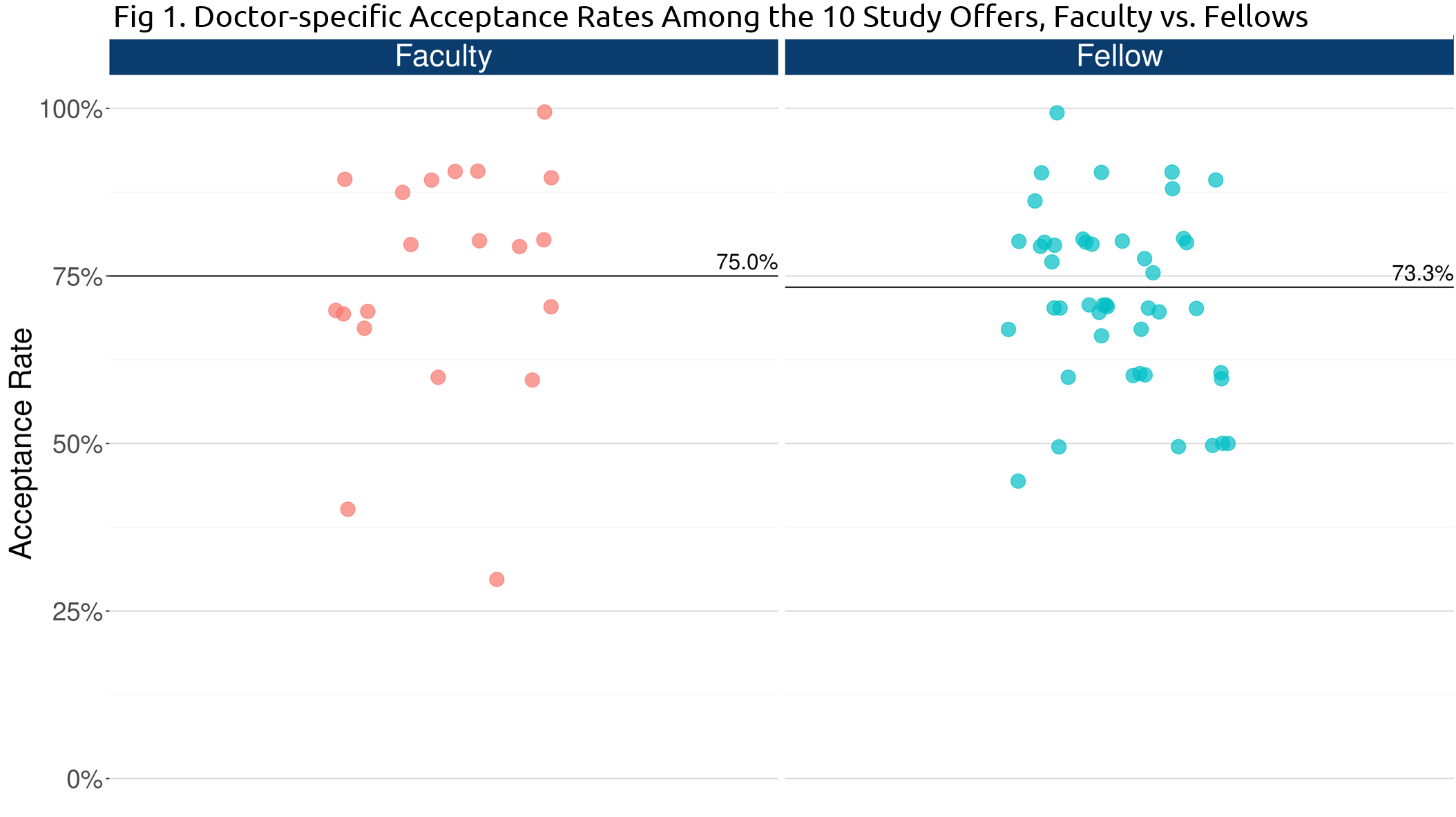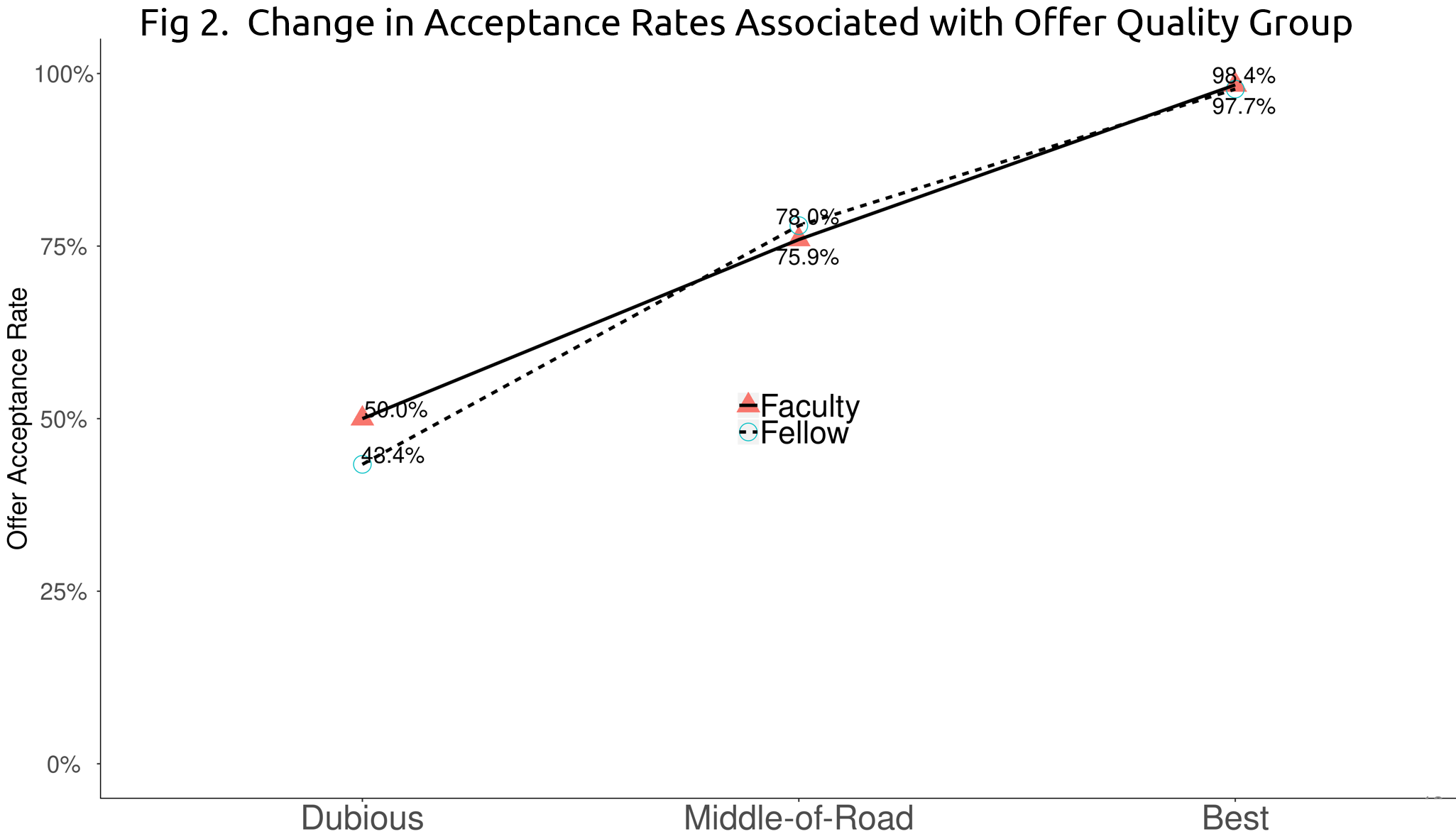Organ Offer Behavioral Research Enhances Transplant Surgeon Training
1Univ of Cincinnati Med Ctr, Cincinnati, OH, 2United Network for Organ Sharing, Richmond, VA, 3Seattle Children's Hospital, Seattle, WA, 4UCSF Health, San Francisco, CA, 5Columbia Univ/NY Pres Hosp, New York, NY
Meeting: 2020 American Transplant Congress
Abstract number: D-024
Keywords: Donors, marginal, Kidney transplantation, Risk factors
Session Information
Session Name: Poster Session D: Kidney Deceased Donor Selection
Session Type: Poster Session
Date: Saturday, May 30, 2020
Session Time: 3:15pm-4:00pm
 Presentation Time: 3:30pm-4:00pm
Presentation Time: 3:30pm-4:00pm
Location: Virtual
*Purpose: Due to the complexities of fielding organ offers, the 2019 ASTS 2nd Year Surgical Fellows Symposium’s agenda included multiple sessions devoted to training on offer acceptance decision-making. A novel organ offer simulation study was conducted in concert with the symposium to enhance the educational experience and assess differences in response patterns among faculty and fellows.
*Methods: During Sep 3-6, 2019, one month ahead of the symposium, 69 attendees (21 faculty and 48 fellows) received 10 hypothetical, clinically-realistic deceased donor kidney offers via UNOS’s DonorNet simulator, SimUNet. Offers included 3 “best” cases: kidneys transplanted with graft still functioning 6-11 years post-tx and predicted to confer substantial 5 year survival benefit; 3 “dubious” cases: graft failed within 2 years, predicted to confer little survival benefit; and 3 “middle-of-the-road” cases (1 sent twice to examine repeatability). Participants accepted or declined each offer and provided their confidence in the decision. Results were presented and discussed at the meeting.
*Results: Though overall acceptance rates were similar between faculty (75%) and fellows (73%), acceptance rates varied markedly among participants, ranging from 30% to 100% (Fig 1).
Faculty and fellows exhibited similar concordance with acceptance decisions and offer quality, accepting “best” offers much more frequently than “dubious” offers (Fig 2). Average confidence levels were notably higher for faculty vs. fellows.
*Conclusions: Despite less experience, 2nd year fellows’ decision-making was as concordant with offer quality as faculty’s, albeit with reduced confidence. Substantial heterogeneity in acceptance decisions suggests the importance of ongoing training in this area. Future offer simulation research tied to surgical fellows training is needed to better understand and reduce variation in decision-making.
To cite this abstract in AMA style:
Diwan TS, Stewart D, Lindblad K, Dick A, Hirose R, Ratner L. Organ Offer Behavioral Research Enhances Transplant Surgeon Training [abstract]. Am J Transplant. 2020; 20 (suppl 3). https://atcmeetingabstracts.com/abstract/organ-offer-behavioral-research-enhances-transplant-surgeon-training/. Accessed February 22, 2026.« Back to 2020 American Transplant Congress


